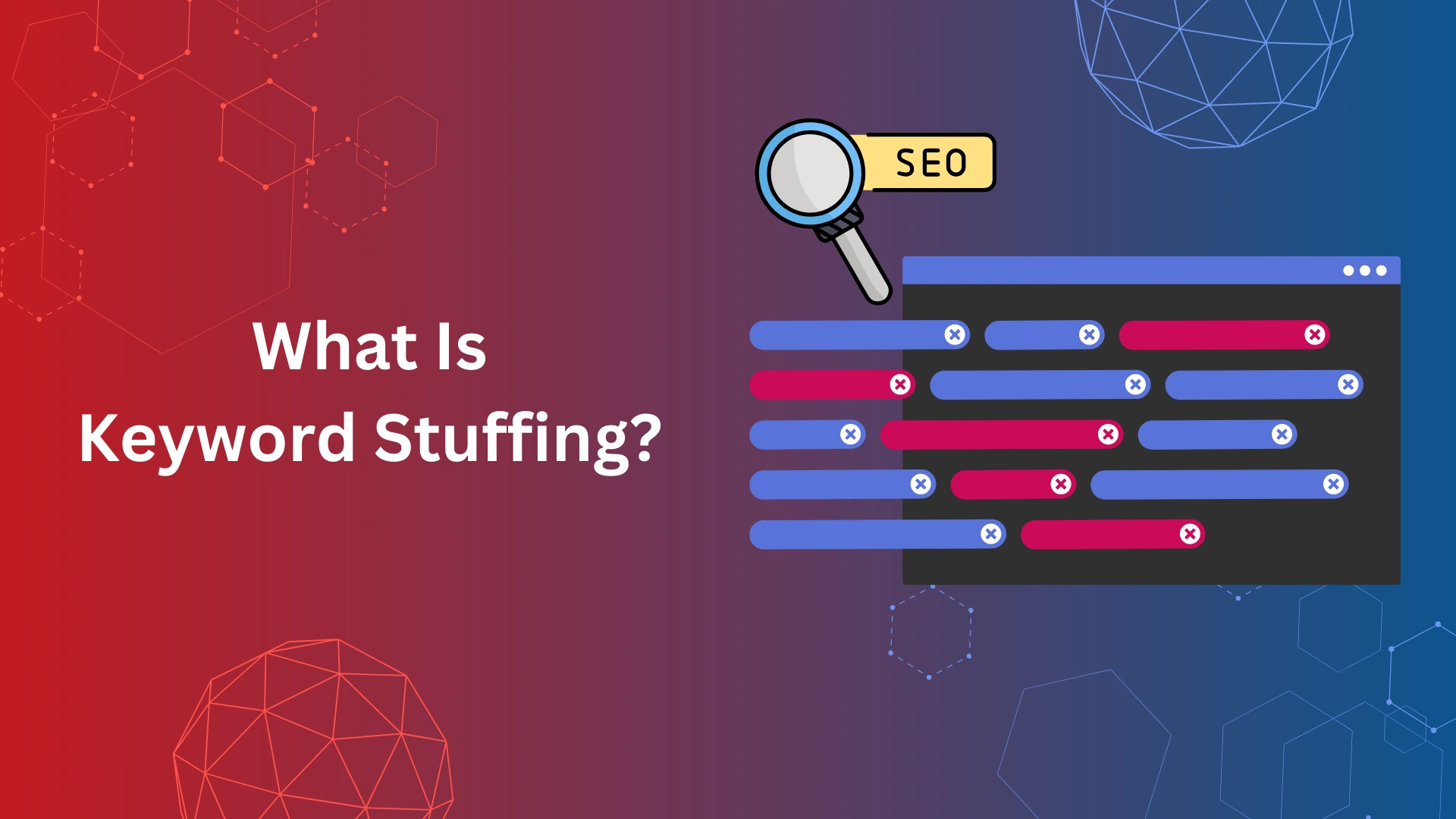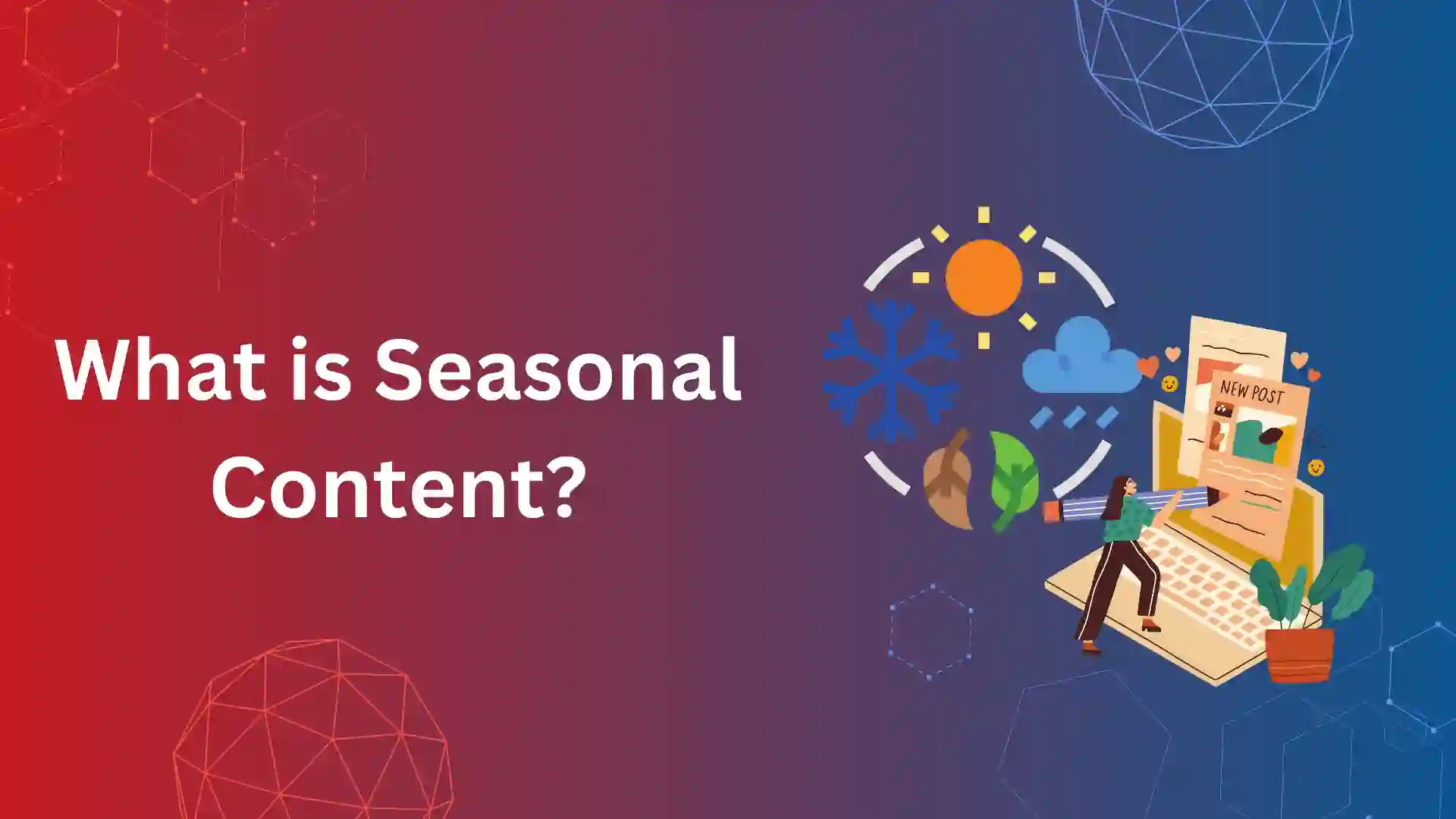Want to boost your SEO without getting slapped by Google? Learn why keyword stuffing is hurting your rankings more than helping.
In this blog we will discuss about,
- What Is Keyword Stuffing?
- How Keyword Stuffing Affects SEO
- What to do instead of keyword stuffing?
- Is keyword stuffing a ranking factor?
Let’s begin!
What Is Keyword Stuffing?
Keyword stuffing is a spammy SEO technique which involves repeating keywords into web pages in an unnatural way and trying to make them show up higher in search engine results.
For example, in this content, you can see the excessive use of the term “SEO,” which can be a sign of keyword stuffing.

How Keyword Stuffing Affects SEO
Keyword stuffing may appear to offer a quick and easy way to improve your SEO, but it actually yields the opposite effect.
Here’s why,
1. Poor User Experience:
- Keyword stuffing can lead content to be poor and unnatural to read.
- Poor content will not be considered as a valuable and helpful content by the google.
- So avoid using keyword stuffing to make your user experience better and provide value to your user.
2. Search Engine Penalties:
- Google Search engines can easily detect keyword stuffing. They penalize websites that try to manipulate search results with unnatural keyword density.
- Penalties can range from a slight decrease in ranking to complete removal from search results for your target keyword.
3. Missed Opportunities:
- When you focus on stuffing keywords, you may miss the chance to create content that truly informs and engages your audience.
- This can lead to missed opportunities to convert visitors into leads or customers.
4. Reduced Brand Credibility:
- Keyword-stuffed content is named as “spammy.” This can damage your brand reputation, making it difficult to build trust with potential customers.
In essence, keyword stuffing hurts your SEO in several ways:
- It decreases user engagement.
- It triggers search engine penalties.
- It limits your content’s potential.
- It damages your brand image.
So, create high-quality content that provides value to your target audience. This is the best way to improve your website SEO.
What to do instead of keyword stuffing?
Here are some effective SEO strategies to follow instead of keyword stuffing:
Target the Right Keywords:
Conduct keyword research to identify the related keywords which match your target audience’s search query.
Incorporate Keywords Naturally:
Naturally incorporate the keywords throughout your content and improve your user experience.
Make your website with clean structure, well-written title tags and meta descriptions, and optimize image alt text.
Create Valuable Content:
Create valuable content that satisfies the needs and interests of your target audience to engage more on your content.
Link Building
Get the valuable links from the authority websites to build your website authority and trustworthiness.
Is keyword stuffing a ranking factor?
Keyword stuffing is not a positive ranking factor, it may harm your website performance.
Search engines always change their algorithms to detect and penalize tactics of keyword stuffing. It prioritises content that provides genuine value to users.
Create high-quality content and follow google guidelines of SEO practices for long-term success in search engine rankings.
Conclusion
Google will easily detect the keyword stuffing. They want to see content that actual humans would want to read, not robotic keyword jungles.
Think about it: would YOU want to wade through a swamp of repetitive keywords just to find the information you need? No way!
Instead, focus on creating content that’s informative, engage which is useful for your audience. In the content, naturally use the relevant keywords, make it easy to navigate and do the link building with other websites.
That’s the magic formula for SEO success in 2024.
So be clear of keyword stuffing and focus on creating content that you’d feel proud to share with a friend. Google will appreciate it and also your readers.
Frequently Asked Questions
Yes, keyword stuffing is bad for SEO because it can lead to penalties from search engines, lower the quality of user experience.
Google penalizes keyword stuffing by lowering the ranking of websites in search results or even removing them from search listings altogether.
There is no specific number of times a keyword can be used before it’s considered keyword stuffing. Instead, use keywords naturally and in context to provide value to users.













